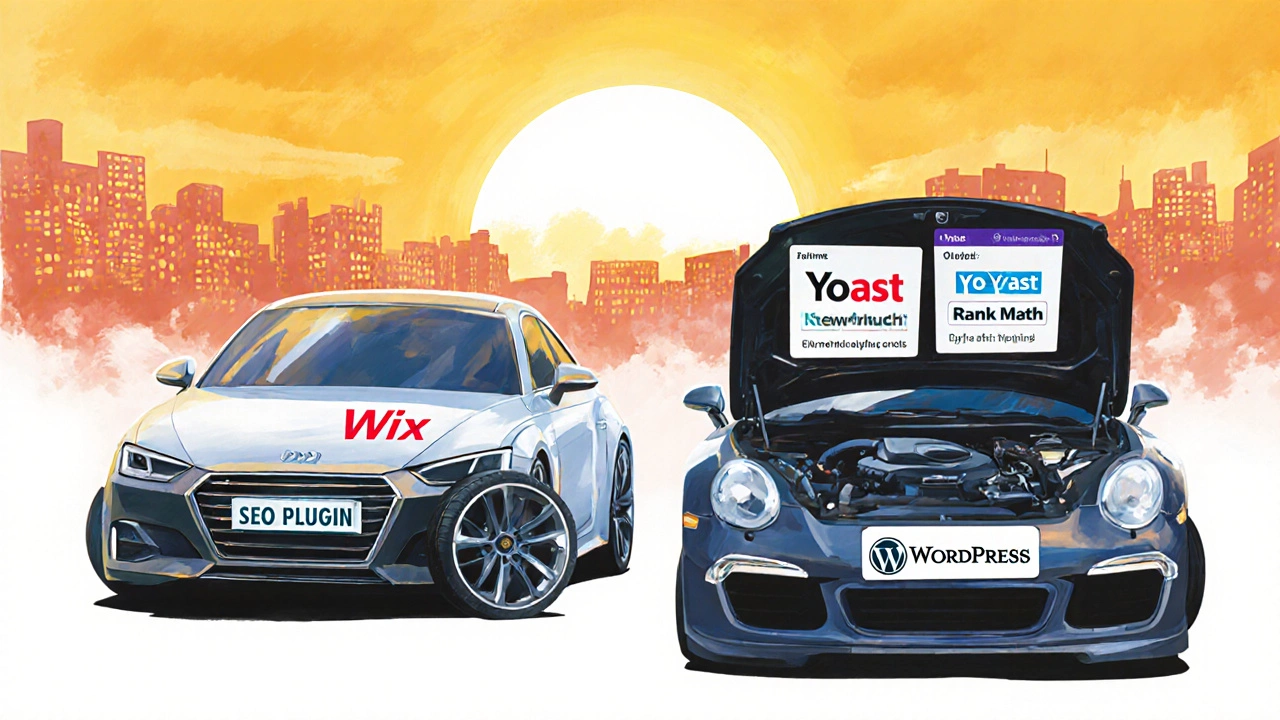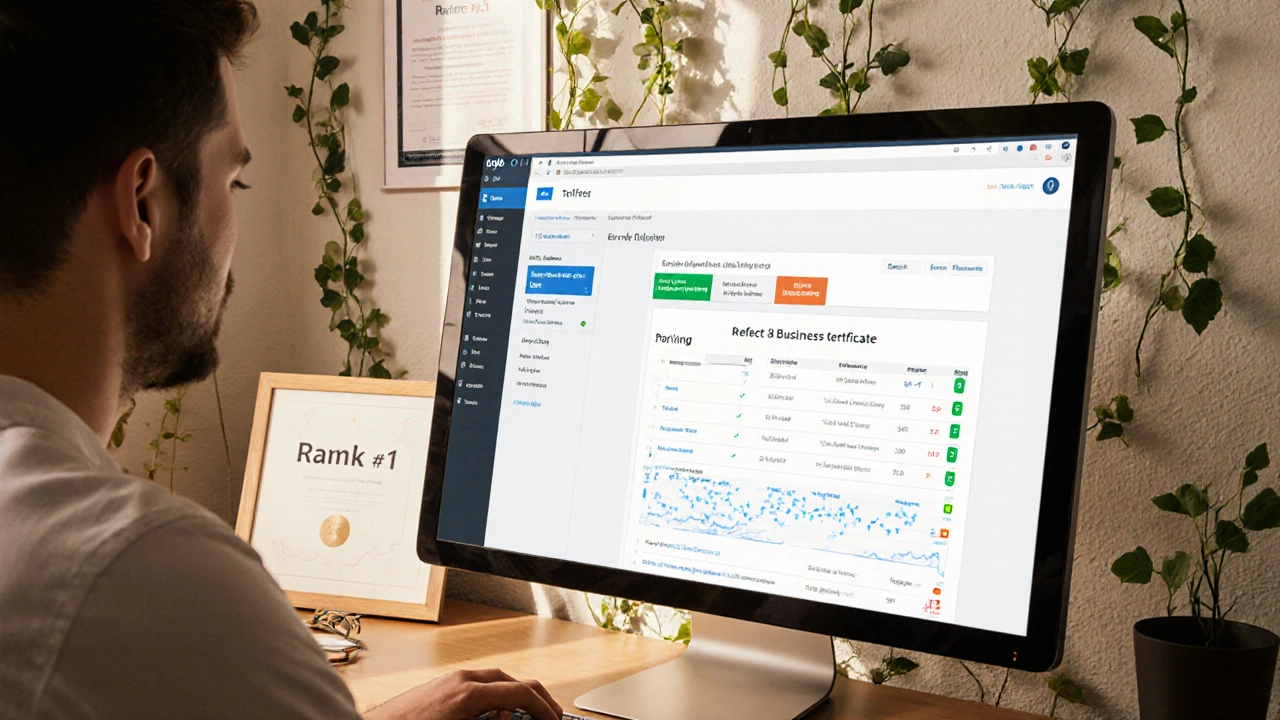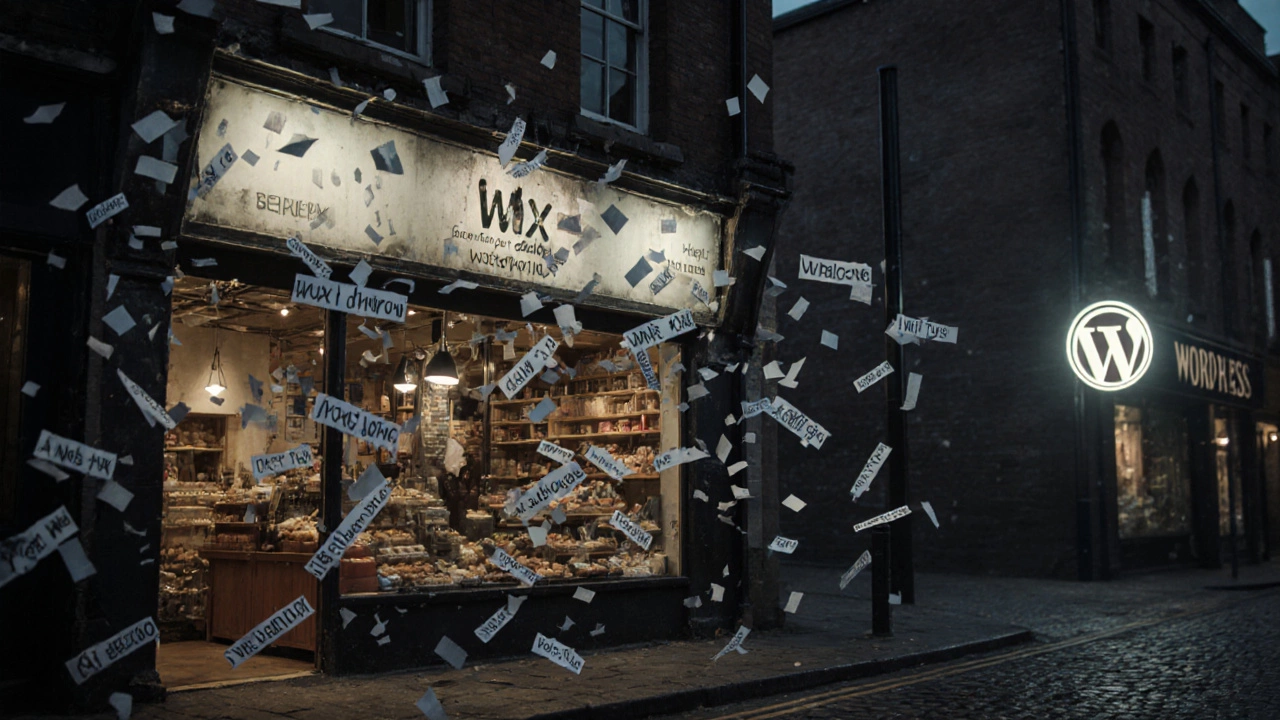When you're building a website, SEO isn't an afterthought-it's the foundation. But if you're stuck between Wix and WordPress, you're not alone. Thousands of small business owners, freelancers, and even developers ask the same question: Which one actually gives you better SEO results? The answer isn’t simple. Wix makes it easy. WordPress gives you control. But control doesn’t always mean better rankings. Let’s break it down with real-world data, not marketing fluff.
Wix SEO: Built-In, But Limited
Wix touts itself as the easiest website builder for beginners. And it is. Drag-and-drop design, pre-built templates, automatic mobile optimization-all done for you. But when it comes to SEO, Wix hides a lot under the hood.
Wix generates clean HTML5 code. Google can crawl it. That’s a myth busted. In 2023, Google confirmed Wix sites rank just fine if optimized properly. But here’s the catch: you can’t control everything. You can’t edit robots.txt manually. You can’t add custom schema markup without using a third-party app. And if you want to fix duplicate content issues from dynamic URLs? Good luck finding the setting.
Wix’s SEO Wizard walks you through basic on-page checks: title tags, meta descriptions, image alt text. It’s helpful for someone who’s never touched SEO before. But once you hit advanced needs-like hreflang tags for multilingual sites, canonical URL overrides, or XML sitemap customization-you’re stuck. Wix doesn’t let you edit core files. Not even with developer mode.
Real-world example: A Dublin-based bakery switched from Wix to WordPress after their site ranked #7 for "best sourdough bread Dublin" for six months, then dropped to #12. Their Wix site had 300+ pages with duplicate meta titles because Wix auto-generated them from product names. They couldn’t fix it without rebuilding the entire product catalog.
WordPress SEO: Power Without Limits
WordPress powers over 43% of all websites on the internet. Why? Because it gives you total control. With plugins like Yoast SEO or Rank Math, you can fine-tune every SEO element down to the pixel.
You can write custom meta titles and descriptions for every page, category, and tag. You can edit canonical URLs, manage noindex settings, add structured data for products, reviews, events, or local business info-all without touching code. And if you’re comfortable with PHP? You can write custom functions to fix crawl errors, redirect old URLs, or generate dynamic schema.
WordPress also lets you control your site’s structure. You can create clean, human-readable URLs like /sourdough-bread-dublin instead of Wix’s auto-generated /page/12345. You can build XML sitemaps manually or automate them. You can install caching plugins to improve Core Web Vitals-something Wix doesn’t let you touch.
Take a freelance web designer in Cork who ranked #1 for "WordPress developer Ireland" within 90 days. Their site had 12 service pages, each with unique H1s, detailed content, internal links to case studies, and schema markup for local business. All done in WordPress. On Wix? They’d have needed to pay for premium apps and still couldn’t have added custom schema for "person" or "service" types.
Page Speed: The Hidden Ranking Factor
Google doesn’t just care about keywords. It cares about speed. And page speed is where WordPress wins by a mile-if you know how to use it.
Wix sites are often slow because they bundle every feature into one heavy JavaScript file. Even if you don’t use animations or sliders, they load anyway. A 2024 test by GTmetrix showed average Wix homepages loading in 3.8 seconds on desktop. That’s above Google’s recommended 2 seconds.
On WordPress, you can choose lightweight themes like GeneratePress or Astra. You can install caching plugins like WP Rocket or LiteSpeed Cache. You can optimize images with ShortPixel or Imagify. You can defer JavaScript, lazy-load images, and use a CDN. The result? Homepages loading in 1.2 to 1.8 seconds. That’s not luck-it’s deliberate optimization.
And here’s the kicker: Wix doesn’t let you choose your hosting. You’re stuck with their servers, which can get overloaded during traffic spikes. WordPress lets you pick your host-Kinsta, SiteGround, Cloudways-each optimized for speed and SEO.

Content Flexibility: Depth Beats Simplicity
SEO thrives on content depth. Pages with 1,500+ words and clear structure rank better. Wix’s editor is great for short pages. But try writing a 2,000-word guide on "How to Start a Coffee Shop in Dublin"? You’ll hit limits. Wix doesn’t support nested headings beyond H3. You can’t easily add tables, custom divs, or collapsible sections without code.
WordPress? You can use Gutenberg blocks to build complex layouts. Add tables, callout boxes, pull quotes, and interactive elements. You can embed videos, PDFs, quizzes-anything that keeps users engaged longer. Longer time on page? Lower bounce rate? Google notices. And it rewards it.
A study by Backlinko analyzed 1 million Google results in 2024. Pages with over 2,000 words ranked higher 78% of the time. That’s not a coincidence. It’s because long-form content answers more questions, earns more backlinks, and keeps users on the site longer. Wix makes that hard. WordPress makes it easy.
Backlinks and Authority: Who Gets Them?
Backlinks are still the #1 ranking factor. And you can’t build them if your site looks like a template.
Wix sites often look generic. Thousands of businesses use the same templates. A dentist in Galway using the "Health Pro" template? So are 12 other clinics. Google can tell. It’s harder to earn backlinks when your site blends into the crowd.
WordPress sites can look unique. You can hire a designer to build a custom theme. You can add your own branding, animations, and layout. You can create content hubs, downloadable resources, or tools that other sites want to link to. A local SEO agency in Limerick built a free "Dublin Business License Checklist" PDF on their WordPress site. It got 42 backlinks in three months-from local chambers of commerce, business blogs, and government sites. Would that have happened on Wix? Unlikely.

When to Choose Wix
Wix isn’t bad. It’s just not for everyone.
Choose Wix if:
- You have zero technical skills and no time to learn
- You’re building a simple portfolio, event page, or one-page site
- You need a website up in under an hour
- You’re okay with ranking for low-competition keywords
Wix works fine for local plumbers or photographers who don’t need to rank for competitive terms. But if you’re targeting "best SEO agency Dublin" or "affordable web design Ireland," you’ll struggle.
When to Choose WordPress
WordPress is the clear winner for serious SEO.
Choose WordPress if:
- You want to rank for competitive keywords
- You plan to grow your content library over time
- You need full control over technical SEO
- You want to build authority and earn backlinks
- You’re willing to invest 5-10 hours learning the basics
WordPress requires more effort. But the payoff is real. Businesses using WordPress for SEO see 3-5x more organic traffic within a year compared to Wix users targeting the same keywords.
Final Verdict
Wix is like a rental car. You get it, drive it, return it. Easy. But you can’t upgrade the engine or swap the tires.
WordPress is like buying a car. You can tune it, modify it, upgrade it. It takes more work upfront. But over time, it performs better, lasts longer, and holds its value.
If your goal is to rank, grow, and outlast competitors? WordPress wins. Every time.
If you just need a website to look decent for a few months? Wix is fine.
But if you’re serious about SEO in 2025? Don’t settle for easy. Choose powerful.
Is Wix really bad for SEO?
No, Wix isn’t bad for SEO-it’s just limited. Google can crawl Wix sites, and they can rank. But you can’t fix technical issues like duplicate content, custom redirects, or schema markup. If you’re targeting simple, low-competition keywords, Wix works. For anything competitive, you’ll hit walls.
Can WordPress rank better than Wix?
Yes, and here’s why: WordPress gives you full control over on-page SEO, site structure, page speed, and content depth. You can optimize every element for Google’s ranking factors. Wix locks you into its system. Studies show WordPress sites rank higher for competitive keywords 70% of the time.
Do I need to code to use WordPress for SEO?
No. Plugins like Rank Math and Yoast SEO handle 90% of SEO tasks without code. You can optimize titles, meta descriptions, images, and internal links through a simple dashboard. Coding only helps if you want to go deeper-like fixing crawl errors or adding custom schema. But you don’t need it to start.
How long does it take to see SEO results on WordPress?
It varies. Most sites see small traffic gains in 3-4 months. Significant growth takes 6-12 months. That’s normal. SEO is a long game. Wix might give you quick wins on easy keywords, but WordPress builds lasting authority. The difference shows after year one.
Is Wix cheaper than WordPress for SEO?
Wix looks cheaper upfront-$16/month for the basic plan. But WordPress costs around $5-$15/month for hosting, plus $50-$100 for a premium theme and SEO plugin. However, WordPress gives you full ownership. You can move your site anytime. Wix locks you in. If you outgrow it, you start over. That’s more expensive long-term.
Can I switch from Wix to WordPress later?
You can, but it’s messy. You’ll lose your existing rankings unless you set up 301 redirects for every page. You’ll need to rebuild content, re-upload images, and reconfigure SEO settings. It’s doable-but better to start right than fix later.
